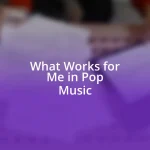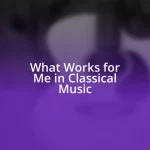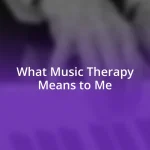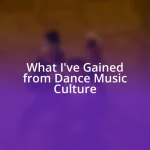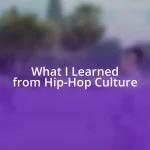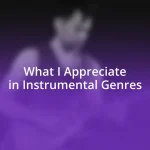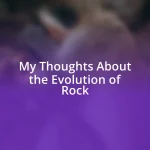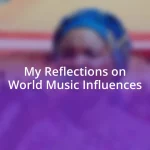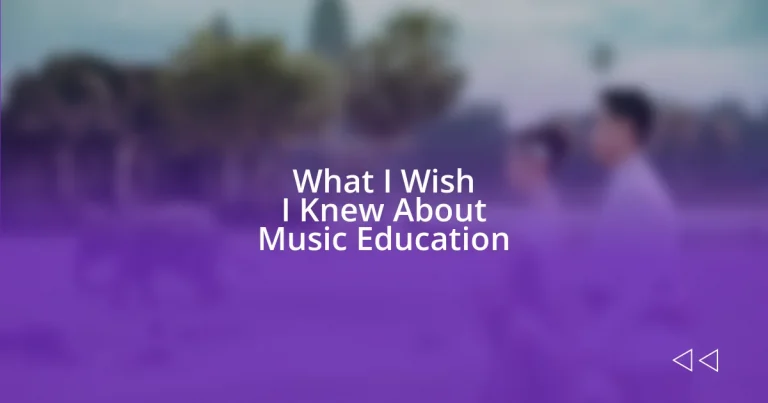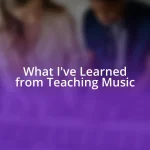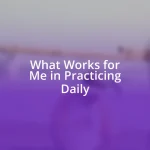Key takeaways:
- Music education fosters creativity, collaboration, and personal growth, impacting students’ lives beyond musical skills.
- Key components of a music curriculum include music theory, performance practice, and improvisation, all of which enhance students’ understanding and expression.
- Engaging parents and overcoming challenges through communication and community support are crucial in enriching a child’s musical education experience.
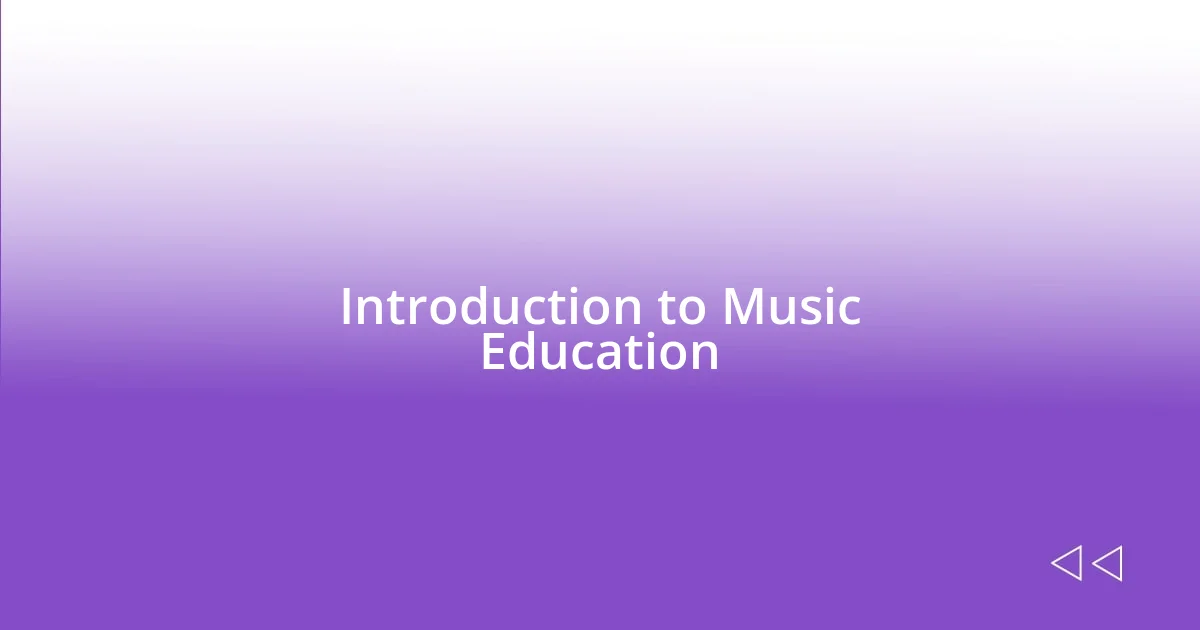
Introduction to Music Education
Diving into music education can often feel like stepping into an entire new world. I still remember my first music class; the excitement was palpable, and I couldn’t wait to explore everything that lay ahead. It’s fascinating to think about how music education nurtures creativity, self-expression, and emotional awareness.
What many don’t realize is that music isn’t just about learning an instrument or reading notes on a page. It’s a powerful tool for building confidence and teamwork. I recall a time in my music group where we had to work together to perfect a piece. Each member, with their unique strengths, brought something special to the performance, highlighting the importance of collaboration within music education.
As I reflect on my own journey, I often wonder how different my life would have been without those early lessons. Music education not only laid the foundation for my musical abilities but also shaped my character and perspective. Isn’t it amazing how one subject can have such a deep impact on our lives?
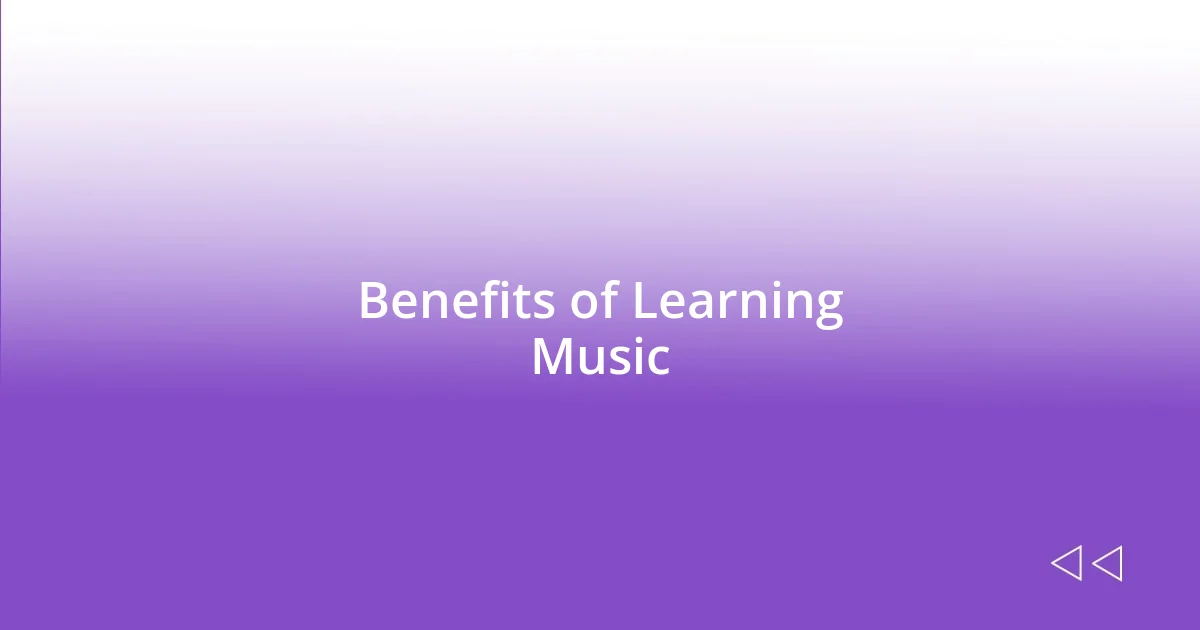
Benefits of Learning Music
Learning music offers a multitude of benefits that extend far beyond mere notes and rhythms. Personally, I noticed how music education sharpened my focus and discipline; practicing regularly developed my ability to concentrate on tasks. I recall late nights in my room, the steady sound of my piano keys cutting through the quiet, where I learned the value of persistence and dedication. These skills not only translated into my musical journey but also spilled over into my academic pursuits, enhancing my overall performance.
Here are some key benefits of learning music:
- Enhanced Cognitive Skills: Learning an instrument can improve memory, critical thinking, and problem-solving.
- Emotional Awareness: Engaging with music helps individuals recognize and express their feelings more deeply.
- Social Connections: Playing music fosters collaboration, whether through ensembles, bands, or small groups, creating lifelong friendships.
- Cultural Appreciation: Understanding various musical styles opens doors to different cultures and perspectives, broadening one’s worldview.
- Boosted Confidence: Performing in front of others, whether in recitals or casual settings, builds self-esteem and a sense of accomplishment.
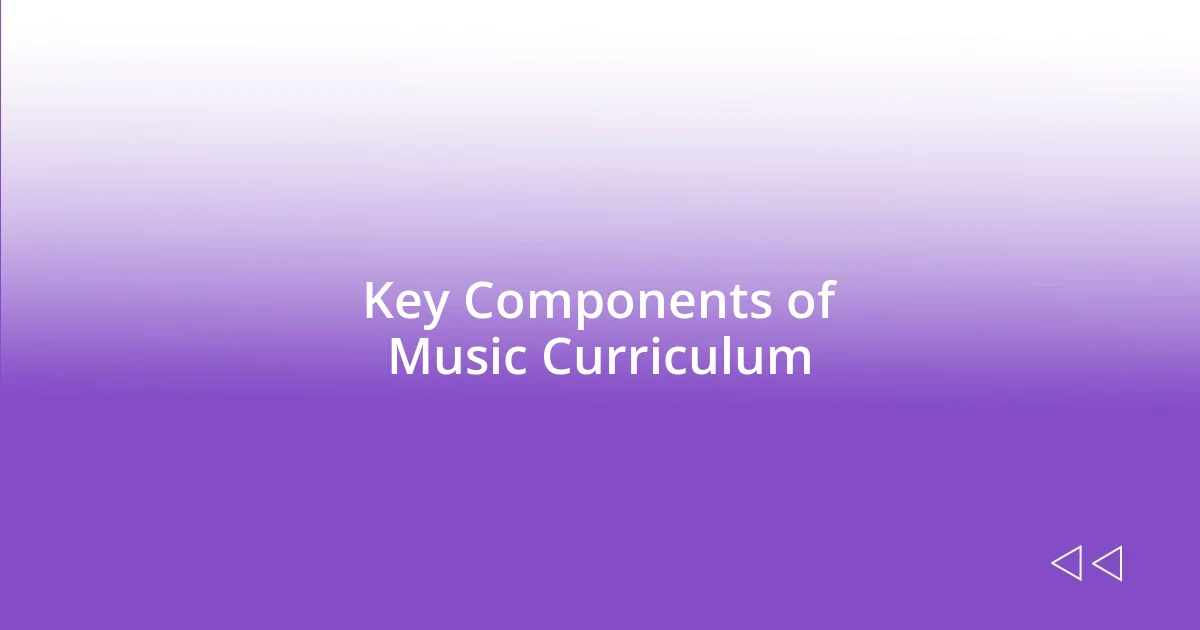
Key Components of Music Curriculum
Music curriculum is an intricate blend of theory, practice, and exploration. One essential component is music theory, which helps students understand the building blocks of music, such as scales, chords, and rhythm. I remember the thrill of deciphering my first piece of sheet music; it felt like unlocking a secret code that allowed me to bring melodies to life.
Another crucial aspect of a music curriculum is performance practice. This is where students get to showcase their skills and connect emotionally with their audience. I still feel the rush of adrenaline before every performance, a mix of nerves and excitement that has enhanced my confidence and stage presence over the years. The experience taught me that performing isn’t just about technical ability; it’s also about sharing a piece of yourself with others.
Lastly, improvisation and composition play significant roles in fostering creativity and self-expression in students. I often found myself lost in the moment, experimenting with sounds and rhythms during improvisation sessions—an experience that added immeasurable depth to my musical journey. Encouraging students to create their own music empowers them to explore their individuality and express their unique voice.
| Component | Description |
|---|---|
| Music Theory | Understanding the fundamental concepts of music like scales, harmony, and rhythm. |
| Performance Practice | Opportunities to showcase skills and develop stage presence through live performances. |
| Improvisation & Composition | Encouraging students to experiment and create their own musical pieces, promoting creativity. |
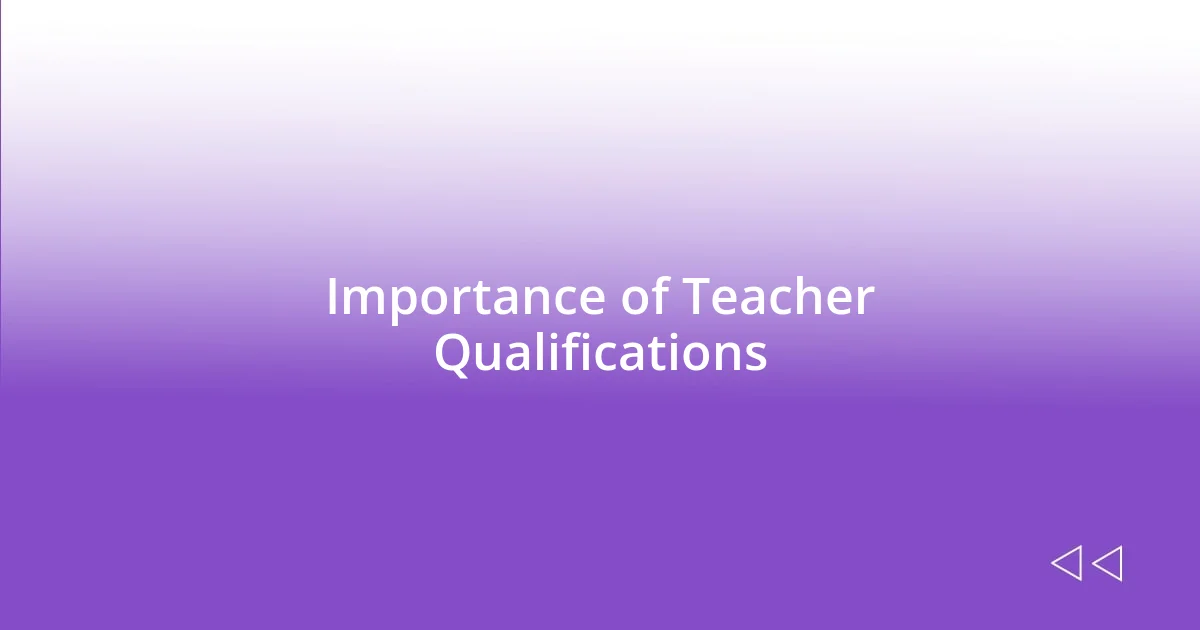
Importance of Teacher Qualifications
Teacher qualifications in music education can profoundly impact students’ experiences and outcomes. I’ve often marveled at how a knowledgeable teacher can make complex concepts feel accessible. When my music teacher demonstrated different techniques with passion, I felt inspired and eager to learn. It’s incredible how their expertise can ignite a spark in students, fostering a love for music that stays with them for life.
Moreover, the qualifications of educators directly affect the depth of knowledge imparted to students. I remember a moment in class when our teacher explained the history of jazz—a blend of creativity and innovation. It wasn’t just about the facts; it was the way he connected those historical elements to our own improvisation exercises that made it resonate with me. This experience reinforced my understanding of music theory in ways that I still carry with me today.
Have you ever considered how a well-qualified teacher can adapt lessons to meet diverse learning needs? I’ve seen it firsthand; a teacher who understood various teaching methods could cater to students at different skill levels. It makes all the difference when educators can tailor their approach, ensuring each student feels validated and challenged appropriately. That’s the kind of environment where true musical growth happens.
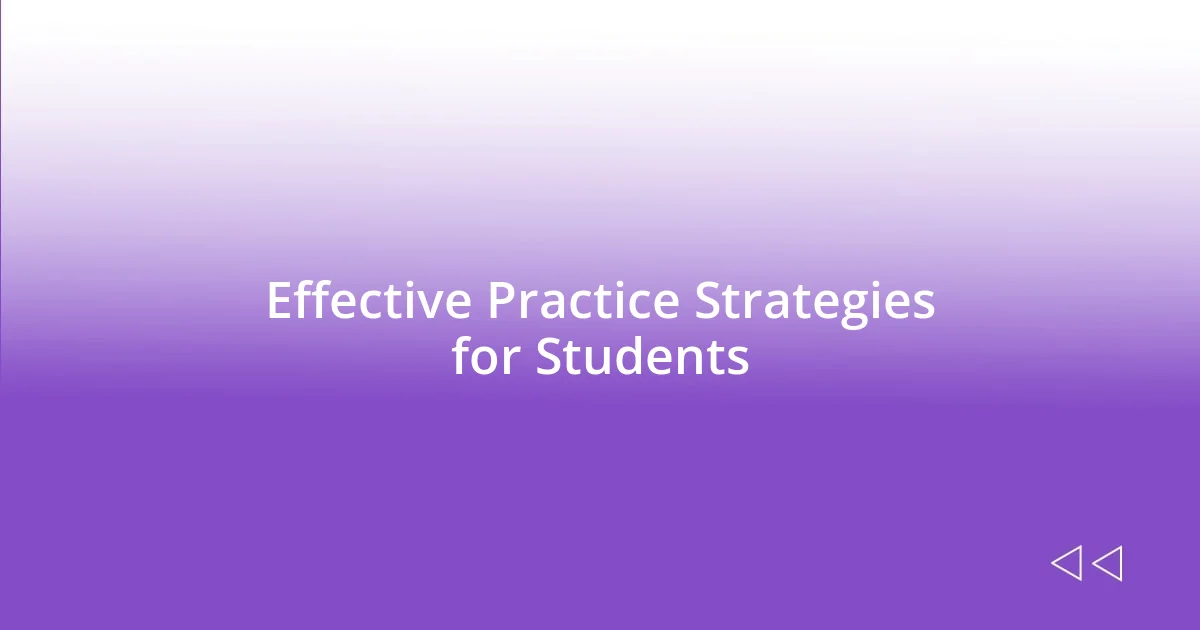
Effective Practice Strategies for Students
When it comes to effective practice strategies, setting clear goals has been a game changer for me. I remember starting out with vague intentions like “I want to get better at piano” but then shifting to specifics—like mastering a particular piece or improving my scales at a certain tempo. That focus turned my practice sessions into more than just time spent; they became meaningful efforts aligned with my growth.
I also found that breaking down pieces into manageable sections made a huge difference. Instead of getting overwhelmed by the entirety of a challenging composition, I’d isolate a few measures, mastering them through repetition until they felt natural. This approach also kept my motivation level high, as each small victory felt like a personal triumph that built up my confidence over time.
Have you ever thought about the power of recording your practice? I used to shy away from this, but once I started, it was eye-opening. Listening back, I could identify areas needing improvement that I wouldn’t have otherwise noticed during practice. The realization that I was making progress or needing to adjust my technique provided a palpable sense of connection to my musical journey.
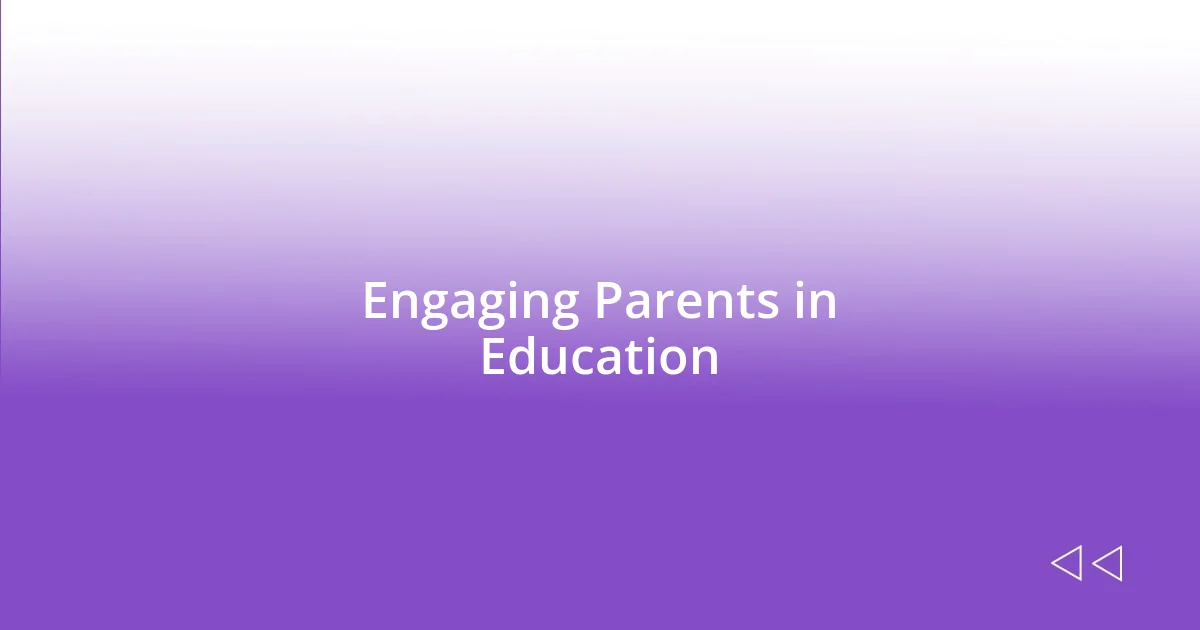
Engaging Parents in Education
Engaging parents in the education process can truly enrich a child’s musical journey. I remember how my own parents attended every concert and recital, cheering me on from the front row. Their presence made me feel valued and motivated; it was as if they were telling me that my passion mattered. Have you seen how just a little parental involvement can boost a child’s confidence and willingness to take risks in their learning?
Communication is key to fostering that connection. I’ve experienced firsthand how regular updates from teachers kept my parents informed and engaged. When my music instructor sent out newsletters highlighting our progress and upcoming events, it sparked meaningful discussions at home. Those conversations motivated me to practice more and pushed me to tackle new challenges, knowing my parents were right there cheering for me.
Moreover, I found that involving parents in activities, such as workshops or jam sessions, can transform the educational experience. I remember the excitement of a family music night where parents and children collaboratively created music. It was a wonderful sight to see parents participating, making mistakes, and sharing laughter along the way. That shared experience not only strengthened our bond but also deepened our appreciation for music as a family. Doesn’t that illustrate how crucial it is for parents to take an active role in their children’s education?
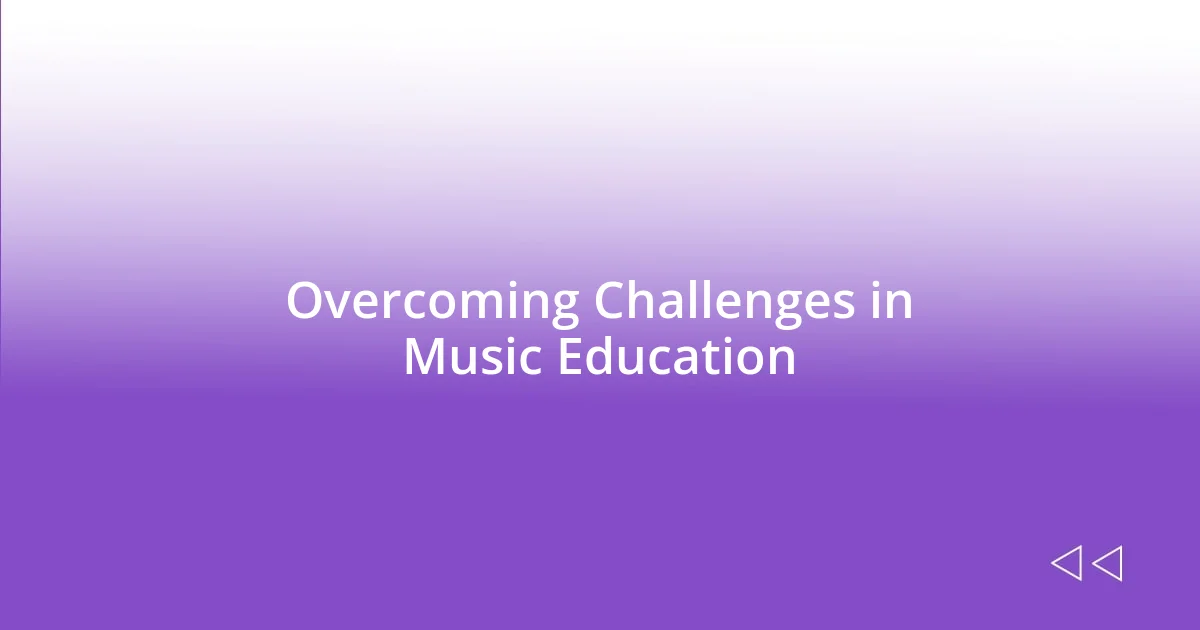
Overcoming Challenges in Music Education
Navigating the hurdles in music education can feel daunting, but I’ve discovered practical strategies that make a significant difference. I’ll never forget the frustration I felt during my first group ensemble rehearsal. Everyone seemed to be on a different page, and my anxiety peaked as I struggled to keep up. It was a turning point when the conductor encouraged us to communicate; expressing our challenges and listening to each other transformed our connection. Suddenly, we were collaborating instead of competing, and I found strength in unity.
Another challenge I encountered was the relentless self-doubt that often crept in after performances. I remember acing my solo but still fixating on the one missed note. In those moments, it helped to reflect on the audience’s energy and appreciation. I learned the importance of celebrating even the small victories and recognizing that no performance is perfect. How often do we let one mistake overshadow the entire experience? Embracing imperfections became a vital part of my journey, turning clouds of anxiety into moments of growth.
Finally, resources can play a crucial role in overcoming barriers in music education. When I was struggling with a particular technique, I stumbled upon online tutorials and communities. I found an incredible support network that not only offered advice but also shared their own challenges. Engaging with a community made me realize that I’m not alone in my struggles. Have you ever tapped into such resources? Just knowing others face similar hurdles can lighten the load and inspire us to persevere, reminding us that music education is not merely a solitary path but a vibrant, shared journey.
